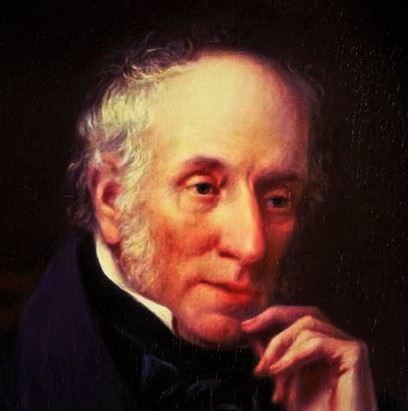
সহকারী অধ্যাপক


০৩ আগস্ট, ২০২১ ০৭:০৩ পূর্বাহ্ণ

সহকারী অধ্যাপক

One of the first things we notice about William Wordsworth's The Tables Turned is the strong sense of one person speaking to another. The poet begins by directly addressing someone who is known to him and giving him an instruction, "Up! Up! my friend." And he quickly follows this with a second instruction, "and clear your looks." And then a specific question, "Why all this toil and trouble?" This pattern is repeated in the next couplet, with repetition of the initial instruction, "Up! Up! my friend." Followed again by a second instruction, "And quit your books." And then a friendly, lighthearted warning, "Or surely you'll grow double." So the start of the poem is very lively, dramatic, immediate. It's highly conversational. Even slightly comic. As Wordsworth teases his friend, telling him to quit his books, and joking that he'll grow double. Whatever that means. Something you might like to discuss in the Comments section. This comic tone in the opening of the poem is reinforced by its colloquial style. Seen in the uses of phrases such as "toil and trouble," and "surely you'll grow double." The comic tone is also reinforced by the use of multisyllabic rhyme words such as "trouble" and "double." So its multisyllabic words are a common feature of comic poetry. And here, Wordsworth uses them to create a sense of lightheartedness and fun. In these opening stanzas Wordsworth maintains this sense of spontaneity and of a conversation actually occurring at a specific time and place. In the second stanza for example, he describes the precise time of day at which the action of the poem is set. As the sun spreads "his first, sweet, evening yellow." And at the start of the fourth stanza, he responds directly to hearing bird song. "And hark! How blithe the throstle sings." So The Tables Turned has a lighthearted, energetic, an immediate feel to its opening. But it's also a poem in which the poet is seeking to teach his friend something. This is a poem about education. And it is also a type of lesson itself. Earlier we asked you to identify what you thought the most important line in the poem was. For me, the key line in this poem comes at the end of Stanza 4. "Let nature be your teacher." Poetry doesn't always have a clear message, but there is one here. The poet is trying to convince his friend that he will learn more from nature than he will from the traditional forms of teaching offered by books or wise men. Much of the poem and many of its stanzas are structured by this juxtaposition of two different kinds of education. On the one hand, we have traditional, formal learning, on the other, we have natural education. In the third stanza, the education provided by books, a dull and endless strife, is contrasted with the wisdom contained in the song of the woodland linnet, a small bird of the finch family. The poet argues that the linnet's song actually contains more wisdom than books do. In the next stanza, the poet again contrasts the bird song that he's hearing. This time that of the throstle. "And hark! How blithe the throstle sings," with another traditional form of education. That offered by a preacher, "And he is no mean preacher." The word "preacher" suggests religious teaching. So here the poet is also making a claim for nature is providing religious or spiritual education. This idea is emphasised by the rhyme of "preacher" and "teacher" in the rest of the stanza. This sense of nature as a spiritual force or religious force is also emphasised by words with imagery, both here and elsewhere in the poem. In this stanza the phrase, "come forth into the light of things," is in part a reference to his calling on his friend to leave his books and come outside into the light of the evening sun that he's described in Stanza 2. But it also carries with it a sense of illumination and revelation. Stepping outside into the natural world will lead to enlightenment. Wordsworth also uses religious language in the following stanza, when he seeks to describe the benefits of nature. "She has a world of ready wealth. Our minds and hearts to bless." So here the benefits of nature are a blessing. They make our minds and our hearts holy, as if they had been blessed by a priest or have been favoured by God. Note as well how the poet presents nature's benefits as "ready wealth." Wordsworth is suggesting that the natural world is more valuable than financial or material riches. So far in the poem nature is primarily being represented by birds, the linnet, and the throstle. But now the poet presents nature as a feminised figure or personification. "She" has a world of ready wealth. In the stanza that follows, Wordsworth again juxtaposes the educative power of nature with conventional teaching. This time, nature is represented by a vernal wood. Vernal means spring time. The poet claims that a single impulse from such a word can teach more about man, "moral evil and of good than all the sages can." Sages being wise men. Throughout the poem then, Wordsworth has set up a series of parallels between traditional forms of knowledge, gained from books and wise men, and a spontaneous wisdom and truth provided by nature's education. In the penultimate verse of the poem, he provides the most striking and potentially controversial opposition between these different ways of experiencing the world. While the law that nature brings is sweet, an overly rational or scientific approach to the world distorts its beauty. "Our meddling intellect mishapes the beauteous forms of things. We murder to dissect." With this striking phrase, "We murder to dissect," it feels like we've come a long way from the lighthearted opening of the poem. And we're looking forward to hearing your responses to this provocative phrase in your comments. But in the poem's final stanza, Wordsworth returns to the direct style of address with which he started. Dismissing science and art, instructing his friend to close his books, with a reference to the books' leaves or pages, "Close up these barren leaves," and again calling on him to step outside. "Come forth, and bring with you a heart that watches and receives." Throughout the poem, Wordsworth has been arguing that nature is the best teacher. Here he emphasises that to learn her lessons, it's necessary to be alert to the many forms she takes, and to be prepared to receive them into your heart. This emphasis on the need to open yourself up to the power of nature if you are to benefit from it, is a key Wordsworthian idea.